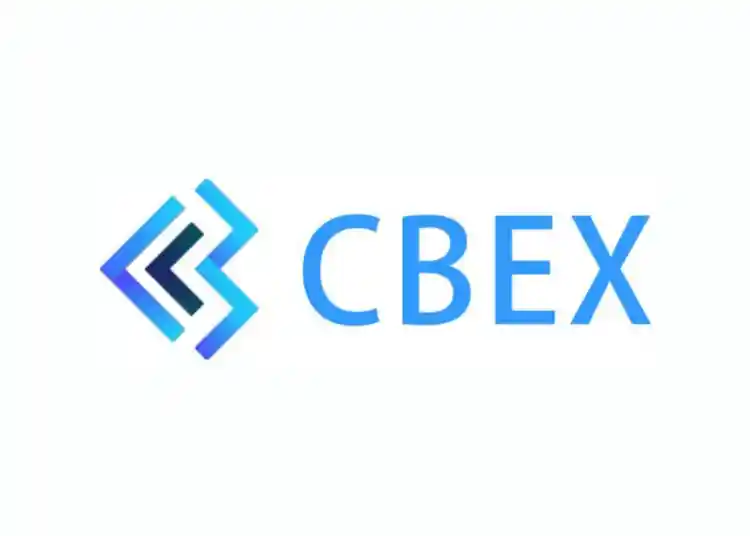The ₦1.3 Trillion CBEX Fraud: Inside the 18-Month Scheme That Crushed Nigerian Investors
- Advertisement -
They Stole ₦1.3 Trillion: The Shocking CBEX Scam That Exposed Nigeria’s Weakest Link
In what is now regarded as one of Nigeria’s biggest digital frauds in recent history, CryptoBank Exchange (CBEX), a now-defunct cryptocurrency trading platform, allegedly defrauded Nigerians of an estimated ₦1.3 trillion. The platform, which lured thousands with the promise of unrealistic returns, has sparked national outrage, triggering a high-level investigation by the Economic and Financial Crimes Commission (EFCC) and international partners like Interpol.
This blog post explains how the CBEX scam was executed, how it slipped under regulatory radar, and what lessons everyday Nigerians must learn to avoid falling prey to future scams.
- Advertisement -
The Rise of CBEX Fraud: Hype, Promise, and Deception
CBEX emerged in early 2025 as a promising digital investment platform claiming to offer 100% Return on Investment (ROI) in just 30 days. Backed by aggressive social media campaigns, sleek branding, referral programs, and paid influencers, the platform quickly gained popularity among Nigerians eager to multiply their savings in record time.
EFCC-Interpol manhunt: CBEX fraud suspects now on global wanted list
- Advertisement -
The fraudsters behind CBEX leveraged:
- Fear of missing out (FOMO)
- Lack of financial literacy
- Distrust in traditional financial systems
- Economic desperation fueled by inflation and unemployment
They built a sophisticated network of agents, online marketers, and WhatsApp groups, creating a false sense of credibility and urgency.
- Advertisement -
Warning Signs Nigerians Ignored
While some experts raised alarm bells early, the majority of investors ignored several classic red flags:
- Too-good-to-be-true ROI promises (100% in 30 days)
- Lack of regulatory approval from the SEC or CBN
- Anonymous founders and no verifiable office location
- No clear business model or real product offering
- Pressure to refer new users to sustain payouts
By the time many Nigerians realized the danger, the platform had already accumulated billions in crypto and naira assets, and withdrawal limits were quietly imposed.
The Crash: False Hope Before Collapse
- Advertisement -
The first signs of a collapse came on Friday, April 11, 2025, when CBEX suspended investor withdrawals. By Monday, April 14, users logging into their wallets were shocked to see zero balances.
In a desperate attempt to buy time, CBEX operators reappeared with a suspicious verification offer:
- $2,000 wallet restoration for $200
- $1,000 wallet restoration for $100
This offer not only failed but further exploited vulnerable victims, many of whom sent more money in a final attempt to recover their lost funds. It was a last-minute cash grab before the platform disappeared completely.
EFCC and Interpol Step In
In the wake of public outcry, the EFCC confirmed it had launched a full investigation and was working closely with Interpol and other global partners to trace the perpetrators.
EFCC spokesperson Dele Oyewale stated:
“We’re tracking the platform’s digital footprint, working with development partners, and using intelligence tools to bring the masterminds to justice.”
The agency emphasized that the Investment and Securities Act (ISA) 2025 empowers them to act swiftly against unlicensed platforms like CBEX.
Nigerians React with Anger and Frustration
Social media erupted with heartbreaking testimonies:
- Retirees who lost life savings
- Youths who borrowed money to invest
- Families whose finances were ruined overnight
For many, CBEX represents not just a financial loss but also a betrayal of trust in the digital economy.
Lessons Nigerians Must Learn
1. High Returns = High Risk
Any platform promising guaranteed double returns in a short time is likely a Ponzi scheme.
2. Verify Before You Invest
Always check if a platform is registered with the SEC or other relevant bodies. If it’s not licensed, stay away.
3. Do Not Fall for Influencer Hype
Scammers often pay influencers and celebrities to promote their schemes. Hype doesn’t equal legitimacy.
4. No Transparency = No Investment
If a company has no known founders, no physical office, no customer service line, that’s a major red flag.
5. Report Suspicious Activities
If you suspect fraud, report immediately to the EFCC or SEC to protect yourself and others.
What Happens Next?
As of now, no official list of CBEX masterminds has been released. The EFCC has promised to update Nigerians as investigations progress. Meanwhile, financial experts are calling for tighter regulations on digital investment platforms, especially in the cryptocurrency sector.
There are growing calls for:
- A national digital investment registry
- Mandatory financial literacy education
- Stricter vetting of online financial platforms
Conclusion: A Wake-Up Call for Nigeria
The CBEX saga is not just a story of fraud—it is a national tragedy. Over ₦1.3 trillion, hard-earned by ordinary citizens, vanished overnight. But more than that, CBEX exposed how financial illiteracy, desperation, and weak oversight can combine into a perfect storm.
As Nigeria recovers from this loss, one thing is clear: vigilance, education, and stronger regulation are the only shields against the next big scam.
- Advertisement -


